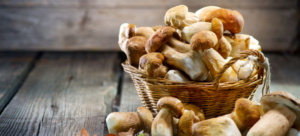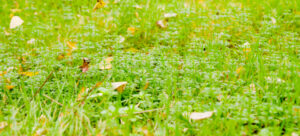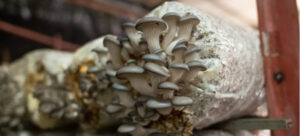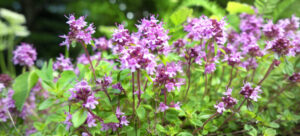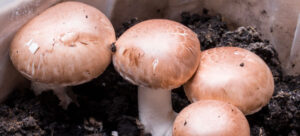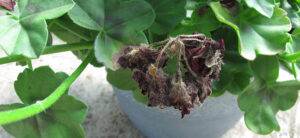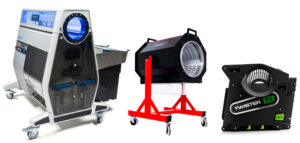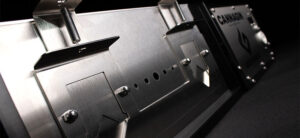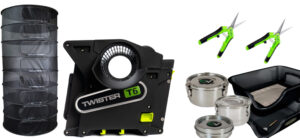
Something that not many growers think about as their facility grows is how they're going to manage the increased volume of harvest waste disposal they're responsible for.
Once the harvest season has ended and your flower is drying or curing, you still have some work to do - you need a legal, environmentally-friendly, efficient way to get rid of all that plant waste from trimming and bucking.
This plant matter isn’t like grass clippings, which can decompose in just a few weeks. Rather, leaves and stems can take anywhere from 6-12 months to fully decompose. Traditional plant waste disposal solutions are inefficient, costly, and detrimental to the planet.
As more and more organizations look for a holistic, cost-effective way to deal with that harvest waste, innovative solutions have quickly emerged.
Today, we’re going to introduce a few options you have that can greatly reduce your time spent worrying about plant waste and save you money. Let's start by looking at the environmental concerns regarding harvest waste disposal.
The Environmental Concern Over Plant Waste Disposal
All that extra foliage you have to deal with after your harvest is complete isn’t just a problem for you - it’s a problem for the environment. As your plant matter decomposes, it will generate methane - a greenhouse gas 87x more potent than carbon dioxide.
With landfills accounting for approximately 14% of methane emissions in recent years, you also have to consider the emissions created in the journey that organic waste takes after it's discarded. Typically, the landing spot for your plant waste isn’t necessarily near your facility - which means fossil fuels are burned as you take trips to and from each spot.
So, the question then becomes - how can you efficiently and safely dispose of all that waste on your own facility, without letting it compost for up to a year or longer? After all, keeping green waste around will lead to the colonization of bugs and other vermin, another problem. Let’s look at some on-site options for plant waste disposal.
Onsite Options for Plant Waste Disposal
Most commercial growers that generate more than 2 cubic yards of organic waste per week are required to compost on-site, haul to a facility to recycle it, or have it picked up by a hauler that recycles organic waste.
We’re going to quickly break down each of these three options to help you understand which is right for you.
Composting The Waste
Composting your waste is a unique method to disposing of harvest waste in that it can help you feed your future plants!
It creates the perfect conditions for bacteria, fungi, and other beneficial organisms to break down the organic matter naturally. Growers around the world have relied on composting for as far back as you can imagine, mainly because it enhances the soil you grow in.
Commercial organizations that compost, however, must have sufficient space to create the compost and then to use the resulting material.
Mulching The Waste
Another option is to mulch your plant waste - which will require a grinder or shredder to break down the organic matter.
Then, you can use these shredded stalks and leaves to mulch your soil, which rejuvenates it with vital minerals and nitrogen.
A Revolutionary Approach To Onsite Harvest Waste Disposal - Using A Biodigester
A new, revolutionary method for eliminating all that plant waste after harvest is the biodigester. These machines break down organic matter through the use of microorganisms and enzymes. There are two main types: anaerobic (without oxygen) and aerobic (with oxygen).
Anaerobic Digesters
Anaerobic digesters will output methane, which you can actually harness as an energy source for your facility!
Unfortunately, though, most commercial growers don’t have the means to bring one of these on-site. They’re very large.
Aerobic Digesters
Aerobic digesters, on the other hand, can easily be installed in any commercial space - even your own!
These create a waste product that can easily be disposed of in your wastewater system. You may even be able to filter the waste water and use it for irrigation - further helping you decrease the waste you make.
What Are The Advantages Of Investing In A Biodigester?

Now that you’re aware of how long that plant waste would need to compost or mulch - a year or longer in some cases - you can probably already see the benefit in quickly, efficiently disposing of your plant waste on the spot.
That’s what a biodigester allows for - immediate, safe disposal of all your plant matter with minimal on the environment.
You can dispose of the waste with existing infrastructure without the need for greenhouse gas-emitting transportation or other disposal of remaining waste.
Plus, these innovative pieces of equipment don’t use any chemicals - but rather, microorganisms to help speed up the natural decomposition of plant waste.
In some cases - your plant matter will be fully decomposed within just 24 hours!
If you’re looking to be a cultivar that leads the way not just with the quality of your flower, but also in sustainability, these are a worthy investment.
Want To See How An Onsite Plant Waste Digester Fits Into Your Harvest Process?
Ready to learn a bit more about these biodigesters, and see if one may be able to help you increase harvest efficiency and sustainability?
We’re a licensed retailer of the Power Knot LCD Liquid Compost Digester. This is the leading harvest waste disposal solution in the entire horticulture industry.
Maybe you’re under the impression that these only make sense for the largest commercial facilities - but that is not true. There is an LCD unit for every grower, with 7 options ranging from 50lbs of waste per day all the way up to 1,000lbs of waste per day!
With a lifespan of up to 25 years, these will be one of the best investments you can make in your facility. There are so many reasons to love the LCD - there are tons of features you have to see for yourself to truly appreciate. Click the button below to learn more and find the right unit for your grow!
